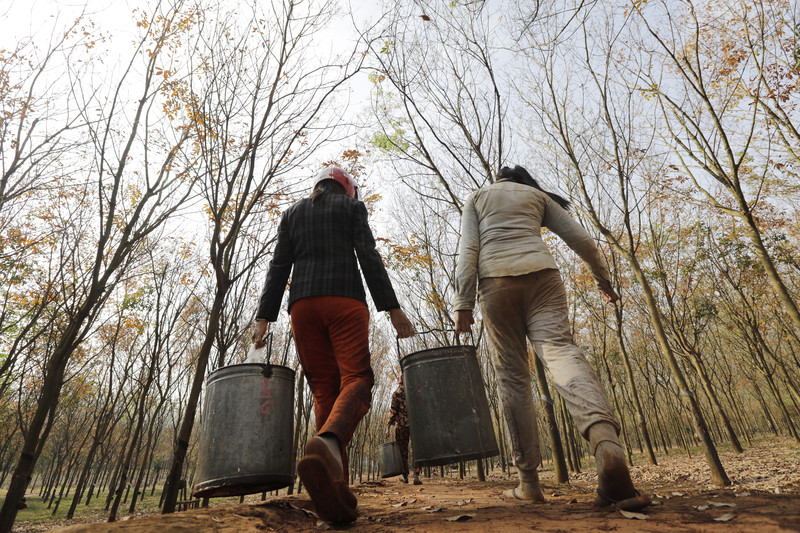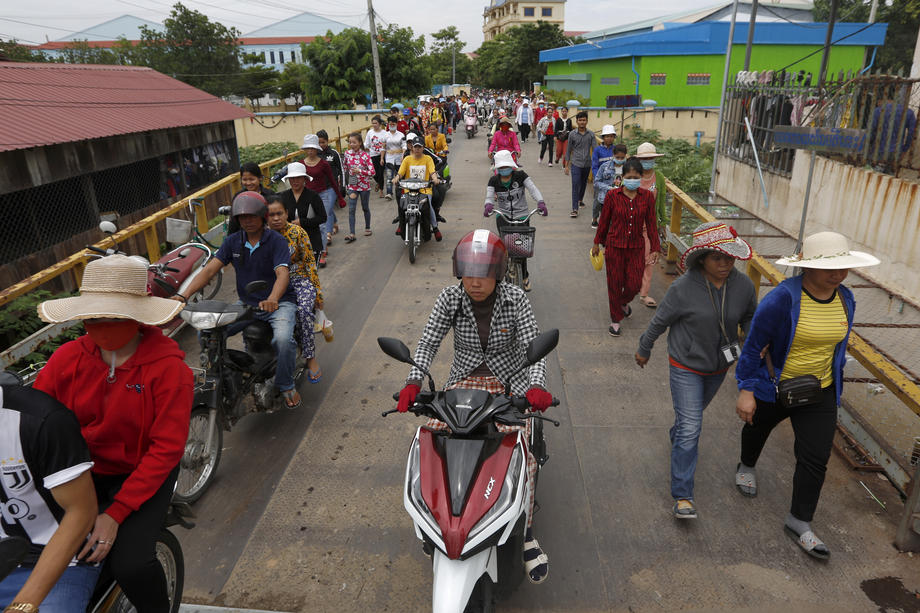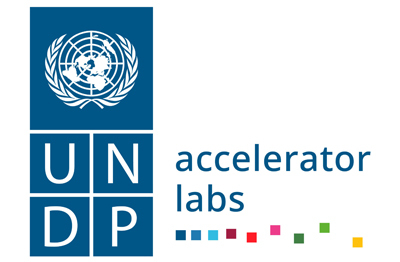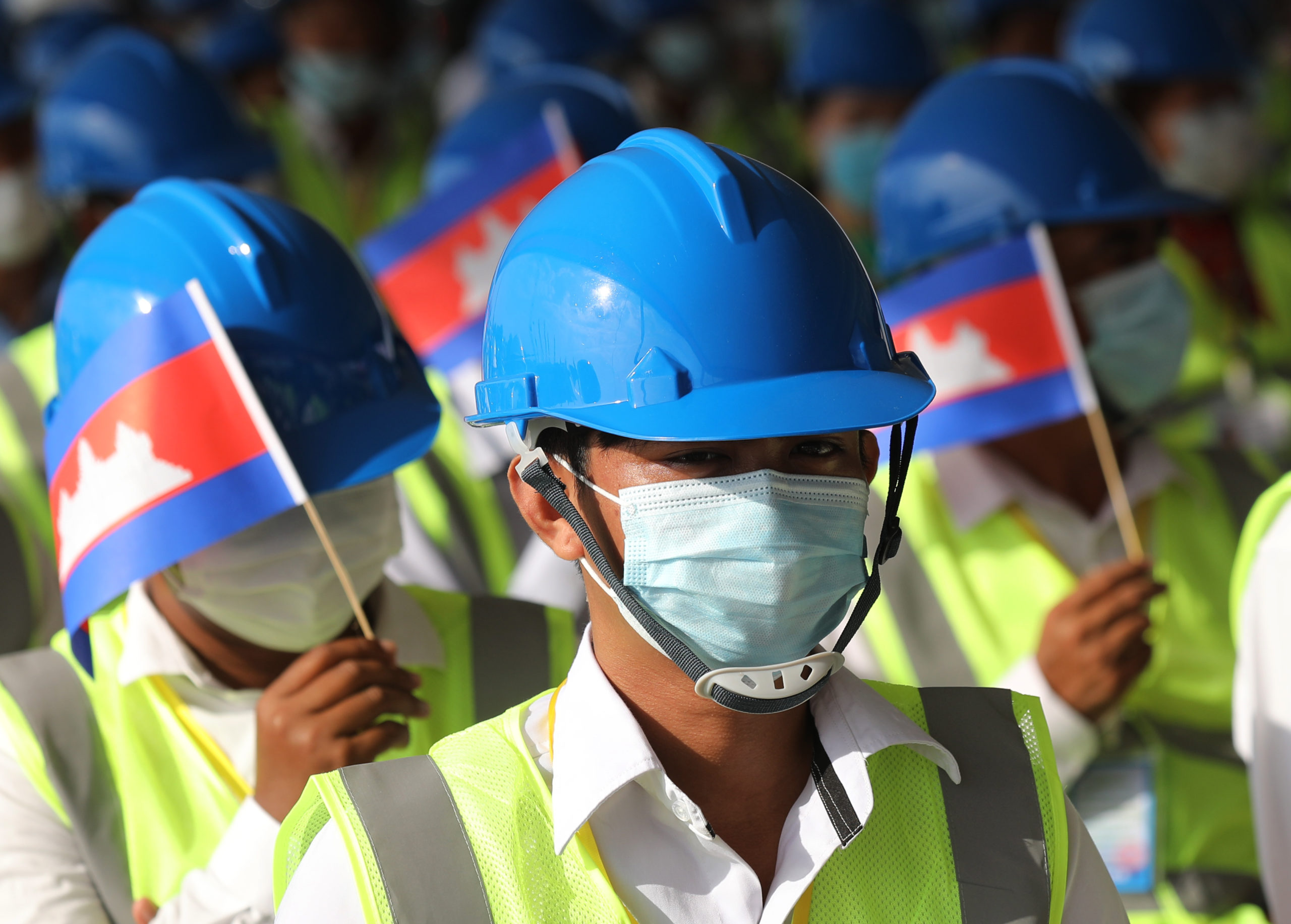In the race toward the future, every competitive edge helps.
That much has come into stark relief in Southeast Asia, where burgeoning economies have for years jostled and elbowed to get ahead of fast-developing neighbours.
But as much as Cambodia has changed in the past decade alone, research conducted in that same time from local bodies, such as the National Employment Agency, and global outfits like the World Bank suggest the country’s ‘skills gap’ has hardly decreased. As the globalised workforce struggles to adapt to the uncertain needs of an increasingly digital society, Cambodia may find itself at a severe disadvantage if its web of public and private-sector actors can’t work together around shared interests.
In the past, said Mar Sophea, training specialist at the Cambodian office of the Asia Development Bank, these groups could find no consensus on how to address the skills gap.
“Both sides, public and private, have pointed fingers at each other,” Sophea said. “Private sector has felt it’s not its responsibility, it’s the government’s responsibility to produce a quality workforce.”
Sophea said that disagreement historically posed a major obstacle to any widespread partnerships to address worker training or continued education. But now, he believes industry leaders in the Kingdom are approaching a tipping point in accepting a major role in skills training. That’s being achieved in large part through recent investments in Cambodia’s network of technical training institutions, many of which had previously been long neglected.
With assistance from the ADB, the national Ministry of Economics and Finance has, since 2017, been conducting a pilot of a skills development fund to build partnerships between training providers and industry representatives from high-priority sectors. The purpose of the fund, launched with $5 million from the ministry, is to solicit technical oversight and programme funding for training courses that directly meet the needs of these growth areas, which include information and communications technology, as well as construction, electronics and manufacturing.
So far, Sophea said, industry has overseen the development of about 20 joint training programmes that have reached about 4,000 trainees from 2018 on. Cost-sharing from the private sector is anywhere from 25-50%, contributed in either financial or in-kind donations. That second category includes training equipment and materials, as well as time from instructors with industry experience.
In 2021, ADB plans to contribute an additional $7 million to expand the pilot fund and develop government capacity to sustainably manage it.
“I think after the pilot, and all of its awareness building and consultation, gradually the private sector has become more interested in this kind of arrangement,” Sophea said. “They can understand where the training institutes need investment, and which ones can provide them with quality training programmes. Then, they can work with them to design programmes and submit to the pilot skills development fund to successfully achieve these things.”

The new public-private framework for training is promising, and Sophea said continued loans from ADB and other institutions could quickly scale up technical outreach in the Kingdom. But according to economic research on the long-term consequences of the skills gap, it’s hard to overstate the urgency of the need for a massive training mobilisation.
By all accounts, workers in the Kingdom are hard at it, contributing to a total labour participation rate the International Labour Organization said in 2018 was one of the highest in Asia. But at the same time, organisations like the World Bank have painted a dire picture of the skill shortage and its potential long-term economic consequences.
Authors of the bank’s 2019 Cambodia’s Future Jobs report note the average worker in the Kingdom has less than 6.5 years of total education and few opportunities to learn new skills throughout their career. The report states more than 17% of firms surveyed by the bank identified “inadequately skilled labor force” as a constraint to doing business, a level surpassed in East Asia only by Laos.
Looking back on the years of mostly similar findings, Chea Dara, a junior research fellow at the Cambodian social policy think tank Future Forum, sees a recurring pattern of disconnect playing its way through the national pipeline of human resources.
“Somehow, when students are finishing their education or training programmes, the skills they’ve been provided aren’t necessarily demanded in the job market,” said Dara, who studies lifelong learning methods. “The skills gap is a big problem [in Cambodia], which tells us there’s a failure on the supply side, the educational system.”
The World Bank authors commented at length on that failure in their Future Jobs report.
Pointing to sluggish improvements in education, the report authors caution that traditional schooling is likely “not a solution” for the current labour force. They also drew a frank outline of the challenges ahead, including the “fragmented and small” systems of skills development that existed at the time of publication.
A lot of the jobs, such as higher-level executive jobs, are still filled by people from outside the country or educated outside the country. Those jobs don’t require just knowledge, but experience as well
In an email to the Globe, Heng Sour, spokesman for the Ministry of Labour and Vocational Training, said the ministry was working with a wide number of partner organisations to better understand areas for improvement. Those partnerships include collaborations with international development groups, such as the Asia Development Bank, and the state-backed Agence France Development and Japanese development agency JICA.
On the corporate side, Sour said the ministry worked with automotives giant Toyota and local conglomerates like KCement and Chip Mong to gauge the needs of the local jobs market.
He didn’t describe any of these partnerships in much detail, but Sour did provide survey data gathered for the 2020 Vacancy Report compiled by the National Employment Agency (NEA) outlining both the skills most valued by Cambodian employers considering future needs, as well as those skills seen as most commonly lacking in new hires.
Within the top four lines of each were English language, the chart-topper for both, and categories like technical skills, problem solving and practical skills. In another part of the survey detailing causes of “hard-to-fill vacancies” in staff rosters, employers told the NEA they were finding tough competition with other firms to attract a limited number of qualified applicants.
That reality is hardly limited to Cambodia, but it’s not uncommon for local employers to run into these kinds of hurdles when hiring for more technical or highly skilled positions.
Ken White, director of Cambodian jobs website Bongthom.com, said that while the placements made through his site showed a trend toward a stronger pool of domestically trained talent, many of the companies he works with are still looking farther afield to make senior hires.
“I think a lot of the jobs, such as higher-level executive jobs, are still filled by people from outside the country or educated outside the country,” White said. “Those jobs don’t require just knowledge, but experience as well.”

The relative scarcity of technically trained workers isn’t lost on Cambodia’s economic boosters, who hope to propel the country into high-income status by 2050. Back in the Ministry of Labour and Vocational Training, spokesperson Sour said his offices had partnered with the ministries of education, interior and women’s affairs to try to drive specific changes in the workforce, such as revamping educational curricula and promoting employment for women.
A wider reformation of Cambodian public education, which has chronically struggled with slim resources including underpaid and little-trained teachers, may be a ways off. In the meantime, a crop of private-sector solutions to the skills gap have blossomed, most of which fall into categories ranging from the charitable to the highly technical.
DataU, a data analytics training and job placement company, is one of the latter.
Joseph Telfer, head of DataU, says the business grew out of a Mekong Big Data, an analytics firm in Cambodia swamped with orders that it didn’t have the capacity to handle.
“We saw our ability to scale was going to be very limited by the availability of good talent,” Telfer said. “It was a growing problem for us and one that down the line looked very deadly, in a sense.”
It’s not as simple as ‘Here’s a tech problem, solve it’. But it’s also not as simple as ‘Here’s a human problem, solve it’. It’s understanding numbers, but then also the human reality behind those numbers
Still, the firm’s leaders saw opportunity in the scarcity of data scientists in Cambodia and, in February of 2020, launched DataU to provide industry training for budding analysts. So far, 25 trainees have gone through the programme and another 45 are due to begin in the first weeks of 2021. Shortly after that, the company plans to open a dedicated headquarters in Phnom Penh to expand annual capcity to 120 trainees. Today, the training course is structured in a one-year bootcamp split into equal parts spent first with the DataU team and then with on-the-job training with a partner corporation in need of analytics personnel. The training firm is still young, but has been received with interest by major Cambodian companies and agencies such as the UN Development Program.
“For what we do, we’re 40% soft skills,” Telfer explained. “It’s not as simple as ‘Here’s a tech problem, solve it’. But it’s also not as simple as ‘Here’s a human problem, solve it’. It’s understanding numbers, but then also the human reality behind those numbers.”
Even in these early stages, Telfer says there’s a high demand for DataU’s services.
The organisation receives about 400 applications for each programme opening and assesses candidates on roughly 500 different data points, examining performance on a combination of exams that gauge ability in maths and the English language, as well as psychometric tests that outline personality traits. He says the application process is intended to find “very particular candidates who will stay the course, support their peers and go on to be a future leader of industry”.
With those aspirations, the incoming trainees might be expected to present themselves as tech wizards right from the start. But Telfer says that’s not necessary, pointing to the weight of soft skills – particularly a drive and an interest in learning – in the fluid modern economy.
That’s helpful for DataU applicants, but it could still pose an issue in Cambodia, where these kinds of traits appear most often in the skills gap. And while Telfer says more traditional learning institutions, such as universities, can struggle to adapt to the rapidly changing needs of the tech economy, he notes that even the most driven and charismatic candidates may be left out of high-level skills training if their academic foundation is lacking.
When looking to the limited education system of Cambodia, the need for that strong base could pose a challenge to large-scale retraining efforts.
“If you don’t have a basic understanding of math and science, no amount of soft skills will help you in data science,” Telfer said.
This story is the third in a series produced in partnership with UNDP Cambodia, which will, over the coming months, aim to drive national dialogue on the future of innovation, youth employment and skills development in the Kingdom.



